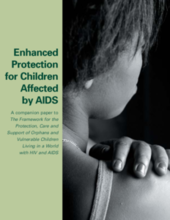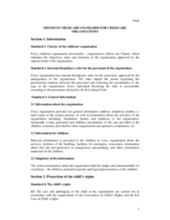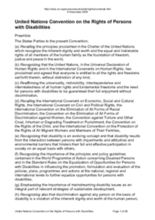Displaying 13631 - 13640 of 14391
A powerpoint presentation on the research findings of the Bucharest Early Intervention Project team. Includes comparisons of children raised in institutional care, vs. children placed in foster care, vs. children raised in the community.
This chapter briefly outlines the range of assessments that are undertaken by psychologists in regards to placements for children in care, and underlines the importance of drawing together information about the child from different sources and perspectives.
Guidelines for a multi-sectoral response to the most urgent mental health and psychosocial issues in emergency situations.
Explores intercountry adoption from the perspective of the adoptees. Focuses on the experience of Korean adoptees in the United States.
Outlines how to strengthen social protection, legal protection, and alternative care for children at country level. Contains specific actions that governments and NGO's can take to decrease the vulnerability of children affected by AIDS and respond to instances of abuse, exploitation and neglect.
Guidelines for the minimum standards for residential childcare institutions in Armenia, including how the child should be received, cared for, and the arrangements for the child leaving the institution.
Overview of institutional and alternative care for Children in Need of Special Protection in Vietnam
The Convention on the Rights of Persons with Disabilities is a human rights treaty establishing rights of persons with disabilities.
Studies the efficacy of Group Interpersonal Therapy for severe depression in HIV-affected communities.
"According to the first stage of our research, there is no significant difference between children, based on their orphan status," Quinlan said. Orphaned children are doing as well in school and engaging in the same level of risk behavior as their non-orphaned counterparts.







